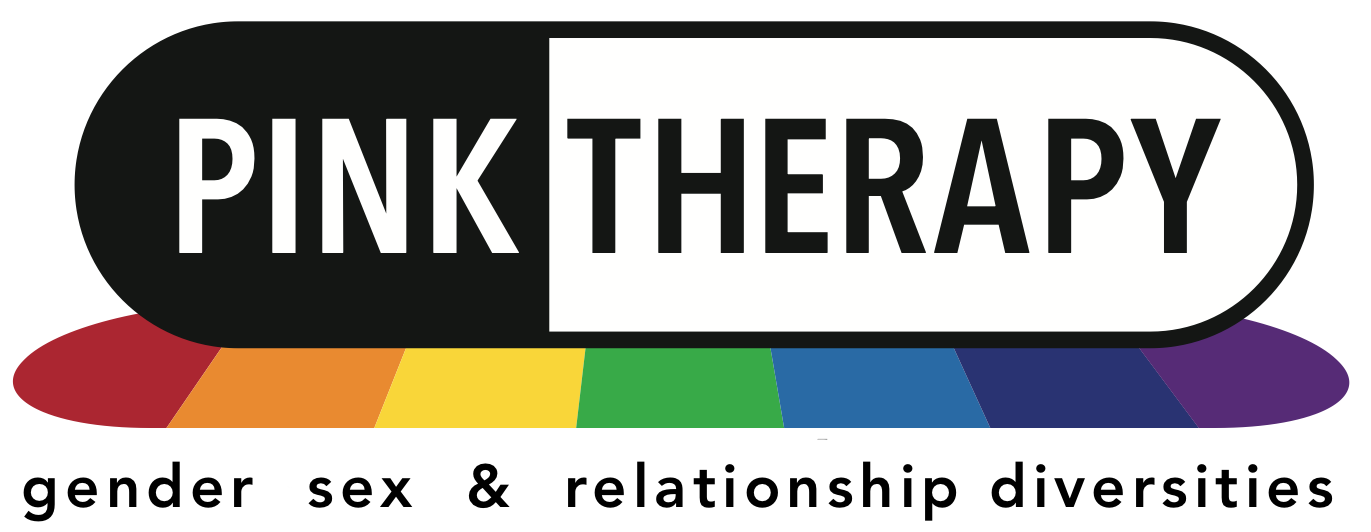
I wanted to say how incredibly moved I am by the level of support I’ve received since announcing my resignation from BACP yesterday. I had no idea that my social media influence was quite so effective and I’ve been overwhelmed by the positive comments of gratitude for taking a principled stand and raising awareness of their failure to address the mental health needs of our community.
Concerned colleagues and BACP members have written an open letter to the Board of Governors. If you wish to join the Pink Therapy closed Facebook group (aimed at therapists working with GSD clients) and follow the discussion click here.
I have also been deeply saddened by seeing the high level of disaffection with BACP – the largest counselling and psychotherapy body in the UK.
“..Removing yourself from such an organisation and doing so publicly gives a voice to all those lgbtq people who have suffered from BACP’s heel dragging and it also empowers the new Society by having you give authority and credence to its stand on issues of sexuality, orientation, and expression.”
I’ve sat by for almost 35 long years hoping BACP would do the right thing and address the issues of improving the quality of mental health provision for LGBT people.
It’s not as if there are no gay people working in the highest echelons of BACP. But it’s largely cis white gay male privilege reinforcing the status quo from within. I recall in my early days of attending BACP annual conferences (when they had such things) that I’d be largely avoided by ‘discretely’ gay/bi senior officials – fear of guilt by association. But it gave me some sense that BACP might be alright and looking out for us.
Sadly this is not the case. They’ve done very little over these three decades to raise the standards of counsellor training to help therapists feel more comfortable discussing sex and relationship issues let alone anything less mainstream like Gender, Sexual and Relationship Diversities (GSRD). I’ve written about this before: Not in Front of the Students in 2007. Nothing’s changed as Meg-John Barker and I reported last year in an article on the UKCP Journal The Psychotherapist
Meanwhile I’ve ploughed my own furrow and made way for a new generation of GSRD therapists and had the privilege of training and working alongside many of them. Developing courses to fill the gap left by the heteronormative mainstream has failed to address.
As Audre Lorde said:
“For the master’s tools will never dismantle the master’s house. They may allow us to temporarily beat him at his own game, but they will never enable us to bring about genuine change. Racism and homophobia are real conditions of all our lives in this place and time. I urge each one of us here to reach down into that deep place of knowledge inside herself and touch that terror and loathing of any difference that lives here. See whose face it wears. Then the personal as the political can begin to illuminate all our choices.”
It’s fascinating that BACP has never sought to create a division around gender and sexual diversity issues. The old PSRF (Personal, Sexual, Relationship and Family) division got rebranded ‘Private Practice’ and there was, for a few years a RACE division but that limped along poorly supported and so as Lorde predicted, the queers and those of colour created their own spaces for support, training and development. The Black and Asian Therapists Network (BAATN) is a thriving active body which meets regularly in London (co-incidentally in the same building as we run our training workshops).
Over the years, largely because of the lack of attention to diversity, I have programmed many large conferences addressing gender, sexuality and relationship diversity issues. Personally taking the risk of financial loss if they’re not well enough attended (and one of these cost me £3k of my savings). I am enormously committed to improving the quality of therapy available and the training of therapists has been a major focus of my career. Pink Therapy receives no grants or external funding. It’s entirely funded from training course fees and directory membership fees. We’ve also followed BAATN’s lead and developed a mentoring scheme because of the endemic homophobia, biphobia and transphobia many counsellors feel in their training courses.
So it feels a kick in the teeth when I hear from people whom I’ve always respected that they feel there is a lack of evidence that Conversion Therapy is being practiced on trans and gender variant people and on asexuals. They may not know of it happening, they may not have seen the research, but that DOES NOT mean there is no evidence! (yesterday I cited several studies). Those of us closely connected to the Trans and Asexual communities are hearing all the time about how crappy therapists have been, how inappropriately they’ve treated them. It’s unfortunate that BACP are so out of touch and uninterested in learning from our communities.
Conversion therapy in the UK is also on a pretty small scale and I’m not sure there has been much ‘evidence base’ for that apart from Bartlett et al who found appalling levels of ignorance amongst mainstream counsellors responding to requests for reduction in their same-sex attractions. But these therapists wouldn’t have said they were doing “conversion therapy” which is a term largely used by fundamentalist Christians or the Orthodox Jewish organisation Jonah. Conversion therapy IS big business in the USA but here in the UK it’s more that well meaning, under-trained therapists agree to try to help a distressed client manage their same sex attractions by encouraging them towards heterosexuality. This is highly analogous to CAMS and other therapists working with children and families who present with gender non-conforming behaviour brought by their concerned parents worried that their child might be gay or trans and being advised to discourage cross gender play.
I am looking forward to taking up membership of what seems a much more supportive and progressive, albeit smaller counselling body – the National Counselling Society who have a policy of accepting members who are already accredited elsewhere in at the same level as they were. So in addition to my existing membership and Senior Accreditation with the National Council of Psychotherapists (who few people seem to know about), I will become enjoy Senior Accreditation and continue to be on the PSA Register. It was tempting to consider joining one of the more renegade groups of therapists like the Independent Practitioners Network, whom I have enormous respect for, but actually I want to be able to try to influence the profession by being a member of a larger body where we can hopefully raise awareness of equality and difference.
I was very troubled to hear though, how BACP seem to be holding a monopoly on who employers recognise as being THE accrediting/registering body for the profession. One person commented on my post that he didn’t feel he could leave BACP as the NHS (in Wales) wouldn’t recognise membership of any other professional counselling/therapy body.
Another respondent said: I’m a referral counsellor for a therapy centre based on my BACP accreditation, it would mean losing my livelihood unless I could persuade the therapy centre to accept the National Counselling organisation that Dominic mentioned…certainly needs to be thought through before I make any moves as I’m not in a financial position just to leave here not to mention all of the clients I currently see here, many of whom are trans or LGB…
Finally one last significant peeve I have with BACP is how they have been actively promoting the concept of “Sexual Addiction” by holding training events around this subject. Sexual Addiction is a highly contentious and controversial subject – where there is no treatment evidence base or even any widely accepted diagnostic criteria and was declined inclusion in the DSM V on this basis. Yet BACP seems to be happy to encourage their members to treat something which most informed clinical sexologists are highly sceptical of. If you wish to read more about The Myth of Sexual Addiction see David Ley’s helpful book.
Dominic Davies
18 Feb 2016

